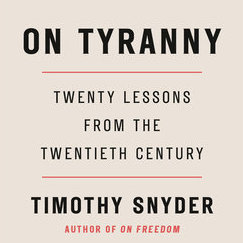First day of class: after a writing exercise that helps break the ice – 10 minutes of “put someone you don’t know very well in a situation of physical duress, and write the scene in first person” (a few students share out loud, while we listen and then comment)—I ask the students to go around the room and say their name, major, and “where they’re from.” I use air quotes, and they all laugh, knowingly. We all understand that the question is fraught, and complex. In this room of twelve (including me), a college classroom in New York City, only two offer a simple answer to the question: I am from Dallas, Texas. I am from Atlanta, Georgia. Third and fourth generation, respectively. Two out of twelve.
One student explains that he was born and raised in Guatemala but is uncomfortable saying so, because in response he is sometimes asked, “Why are you white?” Another student says she grew up in California but has been living and working in Shanghai and feels more “from” there than anywhere now. An older student, returning to school after many years, speaks with an Irish lilt and says she thinks of herself as a New Yorker. Yet another says that her name is Sarah, but it’s also Elise, and her family and childhood friends call her Sarah, but since she’s left home people call her Elise, so we can call her whatever we like.
I love the question, and the complicated answers it elicits. You learn a lot about each person based not only on what he answers, but how. The young woman from Atlanta hastened to add that she knew she didn’t sound like she was from Atlanta, but she could if she tried (and demonstrated, to our delight). The young woman from New Jersey seemed sheepish—about, well, New Jersey. When my turn came around, I felt compelled to resolve my own disjointed answer with something definitive (but I’d say I’m an East Coast girl overall), even though I feel anything but: for me, the question elicits both anxiety, and a bit of shame. I feel like I’m confessing, I don’t know who the hell I am, really.
Some may think the notion of place outdated or unimportant given our globally mobile populations and technology-driven careers. But these characteristics mean that sense of place is more important now than ever. In our hectic and sometimes alienating world, themes of place provoke us to reflect on our situations and both comfort and fascinate us. (from The Common’s mission statement)
Comfort and fascinate, indeed. It’s why many of us are here, involved and engaged, at The Common.
Each month, I’ll be writing about some aspect of life-on-the-move. Like Hannah Gersen, in last week’s In House installment, I’ll be trawling the electronic space out there for tales, trends, provocations, and notable manifestations of modern mobility.
In particular, there are chicken-and-egg questions to consider: Does a rootless life engender restlessness, or does a native restlessness drive one to mobility? Does an itinerant childhood make one more, or less, prone to an itinerant adulthood? In what ways is economic instability a significant cause of mobility, or on the other hand an outcome? And might one ask the same question of affluence, i.e. what are the engines, and manifestations, of “upward mobility”?
And what about the moral aspects of mobility? Writers like Wendell Berry, Kathleen Norris, Donald Hall, William Gay, Arundhati Roy—writers deeply rooted in physical places, in communities—might argue that to be rooted in place is to be morally accountable to others, and thus fully human; whereas Emerson wrote, “Every soul is by […] intrinsic necessity quitting its whole system of things, its friends and home and laws and faith, as the shell-fish crawls out of its beautiful but stony case, because it no longer admits of its growth, and slowly forms a new house. In proportion to the vigor of the individual these revolutions are frequent.”
Perhaps two out of twelve of you who read this can respond to the question, “Where are you from?” simply, without angst. I am from Duluth, Minnesota. I am from Santiago, Chile. I am from Madras. The rest of us muddle through, by turns proud and apologetic, settled and awkward, about our senses of place, and placelessness.
Sonya Chung, Associate Editor of The Common, is the author of the novel Long for This World (Scribner 2010) and teaches fiction writing at Columbia University.
Photo from Flickr Creative Commons


